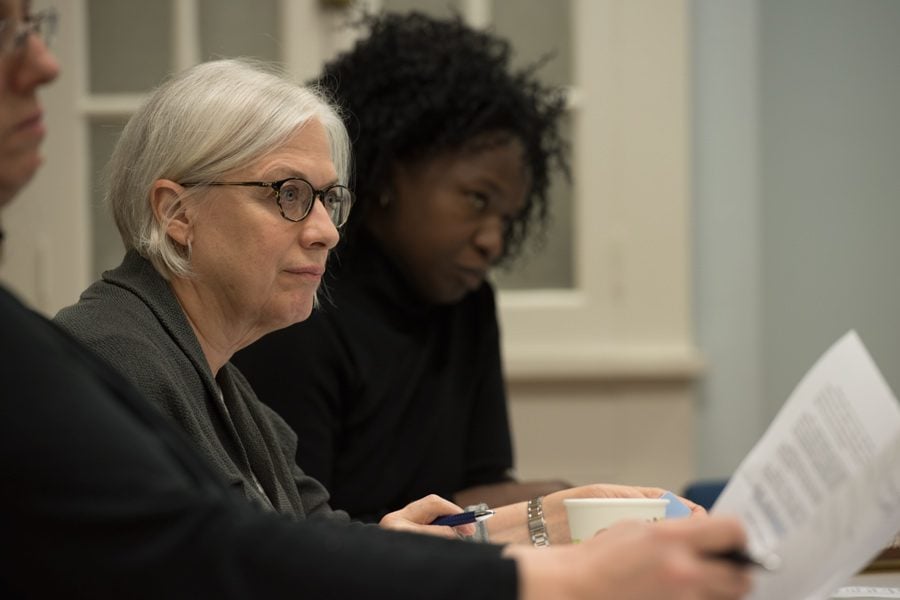Evanston Environment Board endorses ordinance to prohibit polystyrene use
Allie Goulding/Daily Senior Staffer
Jerri Garl discusses a proposed ordinance that would prohibit the use of polystyrene food service containers. Garl made a motion to send city staff, who will revise the draft before it potentially reaches city council.
November 10, 2017
The Evanston Environment Board signaled support for a city ordinance that would ban expanded polystyrene, a plastic commonly referred to as Styrofoam.
A group of Evanston residents proposed a draft ordinance at a Thursday meeting at the Lorraine H. Morton Civic Center. The draft prohibits food service businesses — restaurants, grocery stores and city entities — from using expanded polystyrene. It also includes financial penalties for violating the ban and details exemptions for select businesses.
The board unanimously approved a motion by board member Jerri Garl to refer the draft ordinance to city staff. The draft will be reviewed by the Law Department and environmental staff before it reaches City Council.
“Undoubtedly, we need to take this action,” Garl said. “It’s clearly … an integrated part of a larger conversation we need to be having.”
Rafael Lazaro, one of the residents who proposed the ordinance, said inspiration for the proposal stems partly from action taken by the Trump administration to remove information from the Environmental Protection Agency website.
The federal government has removed many online resources devoted to helping local governments combat climate change.
“To me, that is a wake up call,” Lazaro said. “The change now has to come from municipalities.”
Nevertheless, Lazaro said the proposed ordinance may be difficult to adopt because polystyrene has become essential to local establishments like hospitals and grocery stores.
To overcome this difficulty and potential opposition, Evanston officials and community members need to show unitary support for the measure, he said.
Marie Cabiya, another resident who proposed the ordinance, suggested strategies to defeat challenges to the ordinance and garner support. The cost of replacing polystyrene with recyclable or compostable containers, for example, would be low and could be easily transferred to the consumer, she said
But the switch to recyclable and compostable containers would be almost meaningless if consumers throw those items in the trash, board member Noreen Edwards said. Edwards suggested the proposed ordinance be complemented with sustainability education, including information on recycling.
Lazaro said the ordinance was a “first step” in addressing environmental issues. He added that dozens of cities and businesses across the nation have already adopted similar measures.
“We’re not really reinventing the wheel,” he said. “We’re just asking that the city gets on board with what the trend is.”
Email: alanperez2020@u.northwestern.edu
Twitter: @_perezalan_



